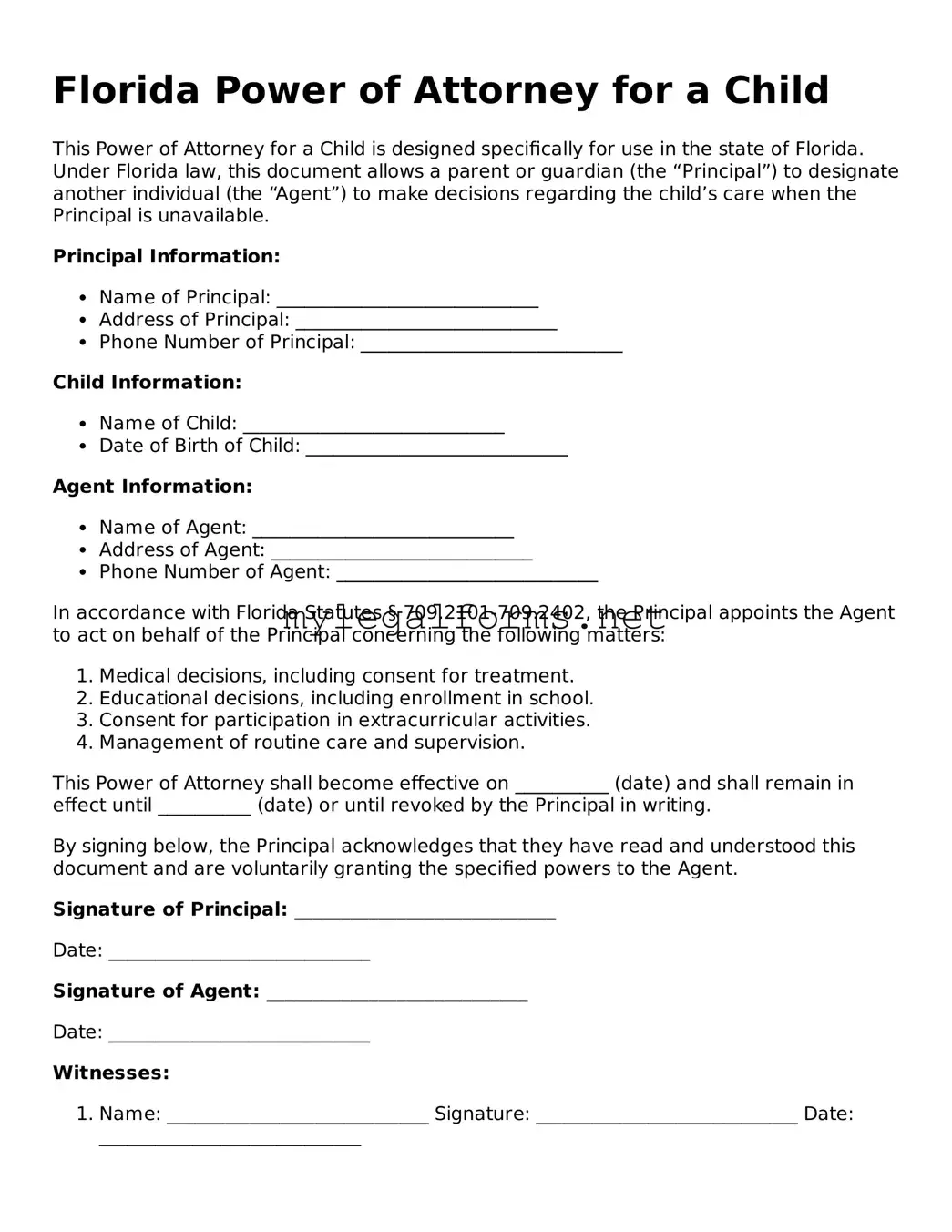Power of Attorney for a Child Document for Florida State
The Florida Power of Attorney for a Child form is a legal document that allows a parent or guardian to grant another adult the authority to make decisions on behalf of their child. This form is useful in various situations, such as when a parent needs someone to care for their child temporarily. Understanding how to properly complete and utilize this form can provide peace of mind for families navigating short-term arrangements.
Launch Power of Attorney for a Child Editor

Power of Attorney for a Child Document for Florida State
Launch Power of Attorney for a Child Editor

Launch Power of Attorney for a Child Editor
or
⇓ PDF Form
Complete the form at your pace — fast
Finish your Power of Attorney for a Child online and download the final version.